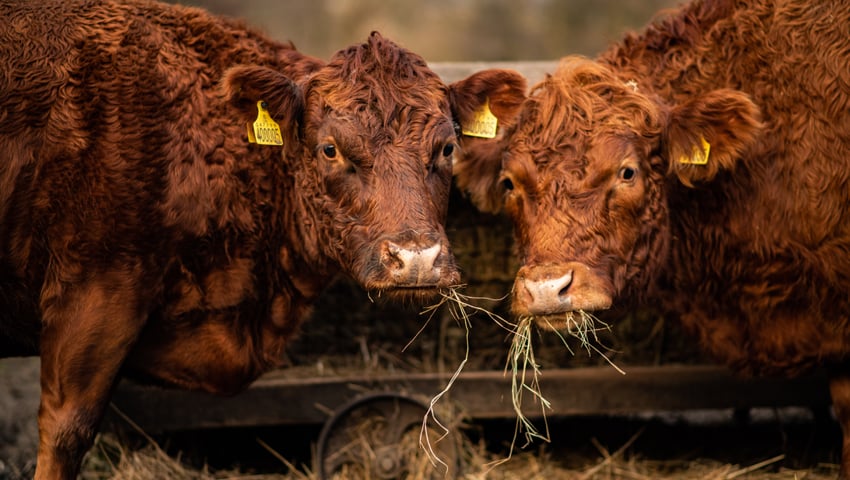Livestock production is under increasing scrutiny as a component of the food supply chain, not least as a result of its impact on global warming.
But amidst growing calls to reduce industrial ruminant production, researchers from Newcastle and Reading Universities set out to consider differences in meat quality and nutritional benefits of organic and/or pasture-based management systems.
Hannah Davis, Amelia Magistrali, Gillian Butler and Sokratis Stergiadis found that “the fatty acid profile of beef produced under pasture-based diets has a more nutritionally desirable fatty acid profile than intensively and conventionally reared beef, and to a lesser extent, maybe even compared with organically reared beef”.
In setting out the purpose of the study, the authors said, “Access to forage, whether fresh or conserved, is a key influencing factor for meat fatty acid profile, and there is increasing evidence that pasture access is particularly beneficial for meat’s nutritional quality.”
These composition differences in the meat ultimately impact nutrient supply to consumers of conventional, organic and grass-fed meat.
The researchers tested three consumption scenarios [https://www.ncbi.nlm.nih.gov/pmc/articles/PMC8909876/] and found that average consumers would receive more of the fatty acids that are beneficial for human health (especially the essential omega-3, alpha-linolenic acid) from pasture-fed beef, produced either organically or conventionally.
The authors concluded that, “This review set out to examine if organic and/or pasture-based beef confers nutritional benefits compared to conventionally produced beef.
“The evidence suggests the fatty acid profile of beef meat produced under pasture-based diets has a more nutritionally desirable fatty acid profile than intensively and conventionally reared beef, and to a lesser extent, maybe even compared with organically reared beef.
“Although some beneficial fatty acids are more prevalent in some analyses of organic beef compared with conventional, the driving force behind the improved fatty acid profile is the forage proportion in the diet. This is particularly evident in the much higher percentage of total omega-3 and long-chain fatty acids EPA + DHA from pasture-based diets compared to organically reared beef.”
Finally, the authors noted that, “It is important to consider that the individual foods and nutrients do not directly affect human health in isolation, but feature as part of the whole diet, which interact with many other factors (exercise, socio-economic status, access to healthcare, etc.) that ultimately determine health.”
Read the study, Nutritional Benefits from Fatty Acids in Organic and Grass-Fed Beef
